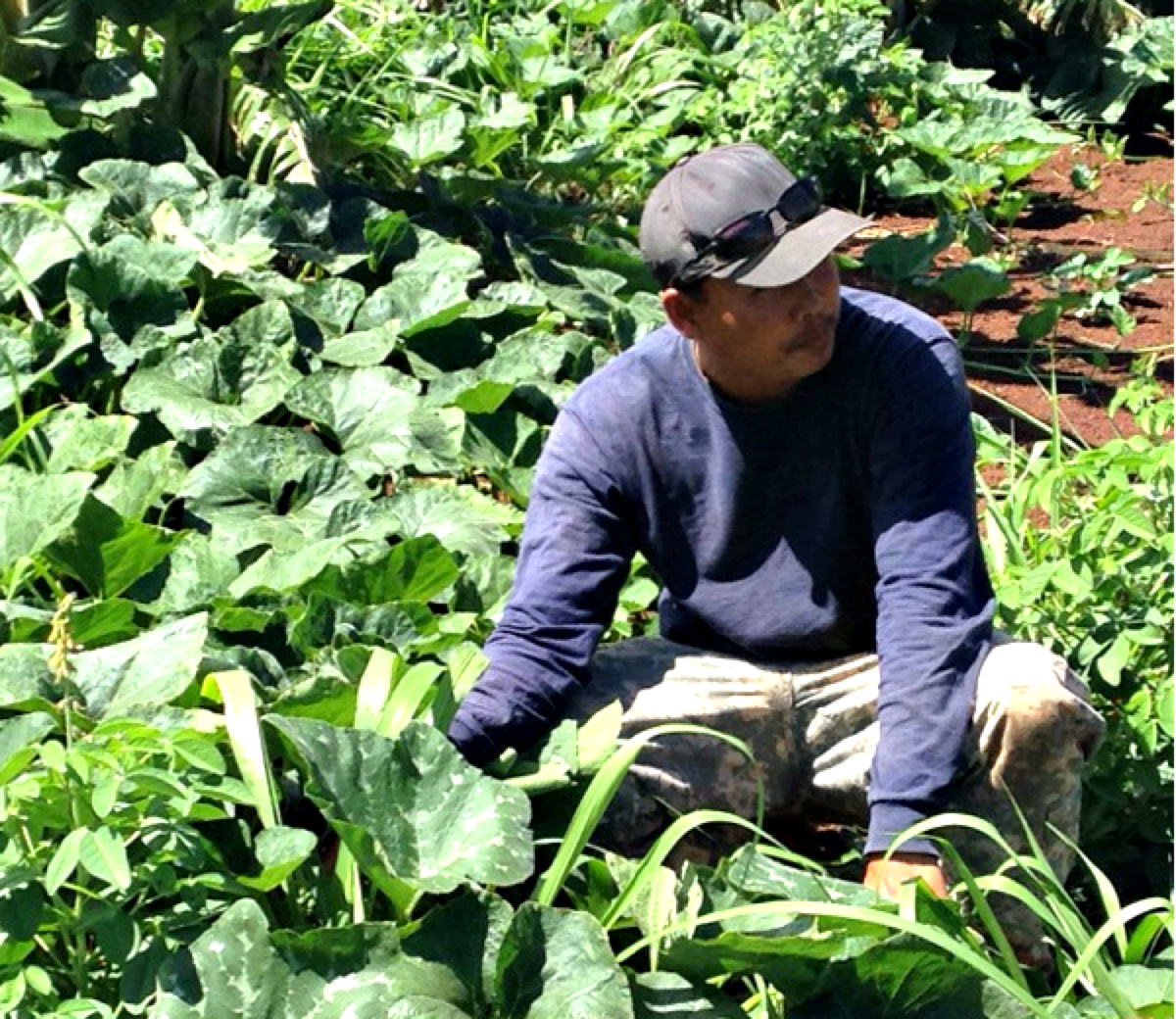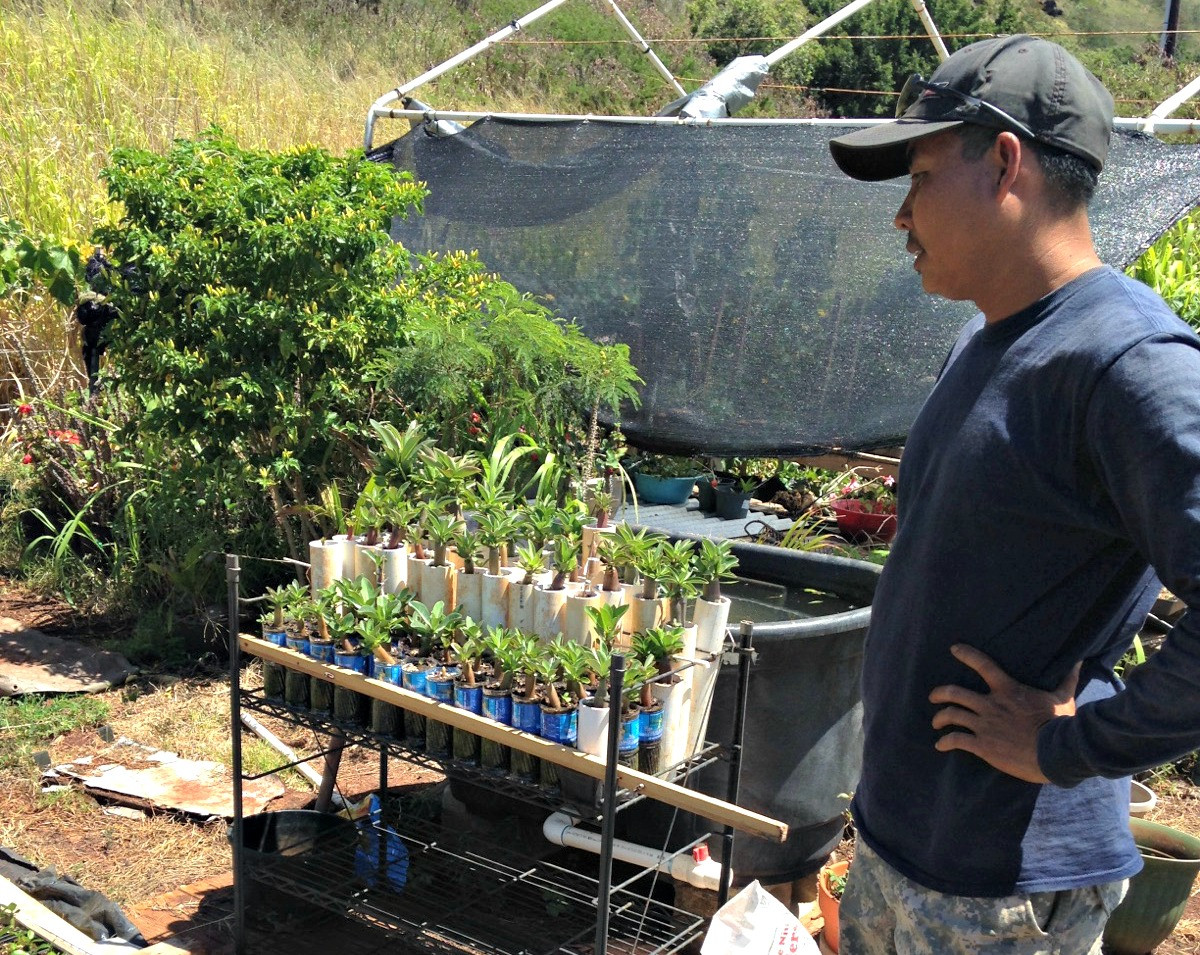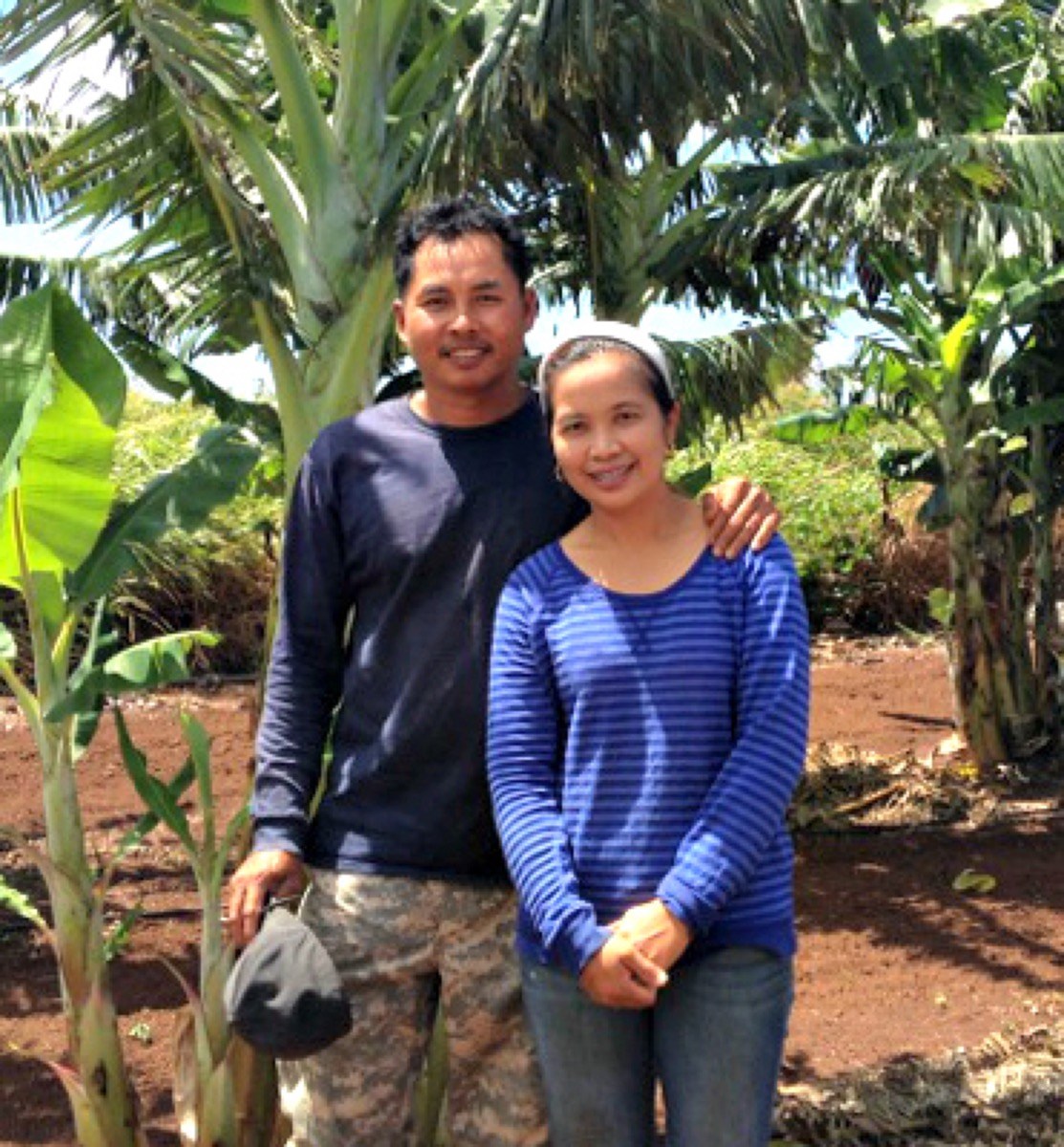Sakda Meephol
Today was hot in Kōloa. It’s been dark for a while and it is close to 9:00 p.m. After a 14-hour workday, a farmer looks forward to a home-cooked meal with his wife and two kids. He finishes tending to his last row of crops, gets up from his knees and dusts off his red dirt-covered clothes. As he makes his way to his truck, he hears voices nearby. He sighs and thinks to himself, “more stealing.“ Walking towards the voices, he gathers some produce and remembers the past...
 | Before moving to Hawaiʻi, Sakda Meephol worked on his family’s farm in Thailand with his eight siblings. Thieves were common, and many farms were forced to arm their lands with booby-traps. Farming is tough, but in Thailand, it was an extremely daunting lifestyle. Without the conveniences of modern farming, hand tools and livestock were used for tilling the soil. To make matters worse, the mafia controlled much of the government and local commerce. In 2004, Sakda and other Thai farmers were recruited by an American firm and brought to Oahu. In hopes of making a better life for his family and one day owning his own farm, he left behind his pregnant wife Usa and two-year old daughter Tunyarut. |
After only 26 days on Oahu, something was wrong. Although his English was poor, Sakda could tell he was being lied to. Luckily – so he thought at the time – another opportunity presented itself. He and several other Thai farmers were offered a three-year farming contract on Kauaʻi. Again, something wasn’t right. Sakda was very good with numbers, and they weren’t adding up. Six months into their contract, they all quit.
Sakda finally caught a break in the summer of 2005. He found honest work in Princeville, clearing land that is now used for growing cacao. During this time, he met the late, Eddie “Cowboy” Malina. Cowboy was a jack-of-all-trades handyman and taught Sakda about construction. In return, Sakda shared his expertise in farming. Having much respect for each other’s talents, they became close friends.
In 2008, things got even more interesting. The FBI began investigating the farms on Oahu and Kauaʻi, where Sakda was employed. Sakda became an informant, often being flown to the FBI headquarters on Oahu. As it turned out, the same company owned both farms and was later exposed for its involvement in human trafficking. One FBI agent – off the record – took a liking to Sakda and helped get him back to Thailand for the first time in over six years. His daughter, Tunyarut, was now nine years old. Sakda’s son, who he was meeting for the first time, was six – his nickname was Book. After a month in Thailand, Sakda returned to Hawaiʻi and kept the dream alive of one day having his own farm. |  |
Making contacts proved to be more than a challenge. Sakda often worked seven days a week, and was still learning to speak English. Several years passed. Cowboy and other friends found an opportunity to lease farmland from Grove Farm. They helped Sakda through the application process, and in 2012, the dream became a reality – Sakda had his own farm! Soon after, that FBI agent – off the record – assisted Sakda’s family, moving Usa, Tunyarut and Book to Hawaiʻi.
Back in Kōloa –
The closer Sakda gets, the louder the voices become. He rounds a corner and sees the backs of a mother and daughter. They hear Sakda coming and he stops them before they decide to run.
Sakda is carrying some papaya and a hand of bananas that he gathered while tracking their voices. He holds them out, offering them to the little girl who appears to be several years younger than Book. The mother’s arms are full with the freshly picked produce she intended to steal. Sakda speaks to the mother the way he would to his own child.
“Why you steal?”
“Is this what you want to teach your daughter?”
“Are you hungry?”
“You ask, and I give!”
In farming, theft is common. Sakda chooses not to call the police, nor set up booby-traps like they do in Thailand. He is kind, hard working, and leaves you feeling better about the world.
 | Book currently attends Kōloa Elementary School and Tunyarut attends Kauaʻi High School. She and her younger bother often help with the farm on the weekends. Sakda and Usa are so proud of their children, but rather than giving praise, they always encourage them to do better. Sakda knows that he’s hard on them at times, but he believes in teaching them the values of hard work and doing things the right way, for the right reasons. Sakda and Usa Meephol currently have two farms on Grove Farm land in Kōloa and Māhāʻulepū. They operate the fruit stand off of Ala Kinoiki Road, near the Poipu Road intersection. Their extensive array of produce can also be found at farmer’s markets at Kauaʻi Community College, Kukuiʻula, and Kauaʻi Sunshine Markets. If you would like more information, please contact the Grove Farm office at (808) 245-3678. |
